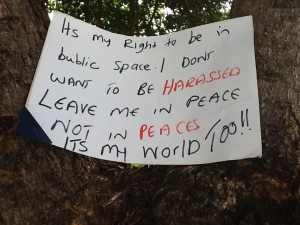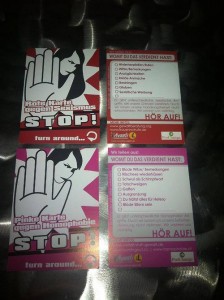Last week, thanks to the efforts of our partners Collective Action for Safe Spaces, Washington, D.C. became the first city in the country to pass a dedicated anti-street harassment law. This effort began in 2015 and SSH board member Layla Moughari and I were among the dozens of people to testify about street harassment at a round-table organized by the DC City Council.
“The Council of the District of Columbia passed the Street Harassment Prevention Act as part of the budget on Wednesday, which would create a definition of street harassment, collect data on harassment, train government employees to recognize and intervene in harassment, and create education campaigns, among other measures.”
This law creates the first legal definition of street harassment in the nation and it is one that builds on the definition the SSH board wrote a few years ago.
It includes “unwanted, disrespectful, or threatening comments, gestures, or other actions forced on a stranger in a public place without their consent, directed at someone because actual or perceived gender, sexual orientation, identity or expression, race, ethnicity, religion, national origin, or any other characteristic identified in the Human Rights Act of 1977.”
This isn’t the only timely thing happening:
- A national law against street harassment is under debate in the French Senate (after passing in the National Assembly in May).
- In April, a city in Chile became the first in the country to pass an anti-street harassment ordinance.
- Some parliament members in the UK are advocating for street harassment to be made a hate crime nationally, as it already is classified in Nottinghamshire.





